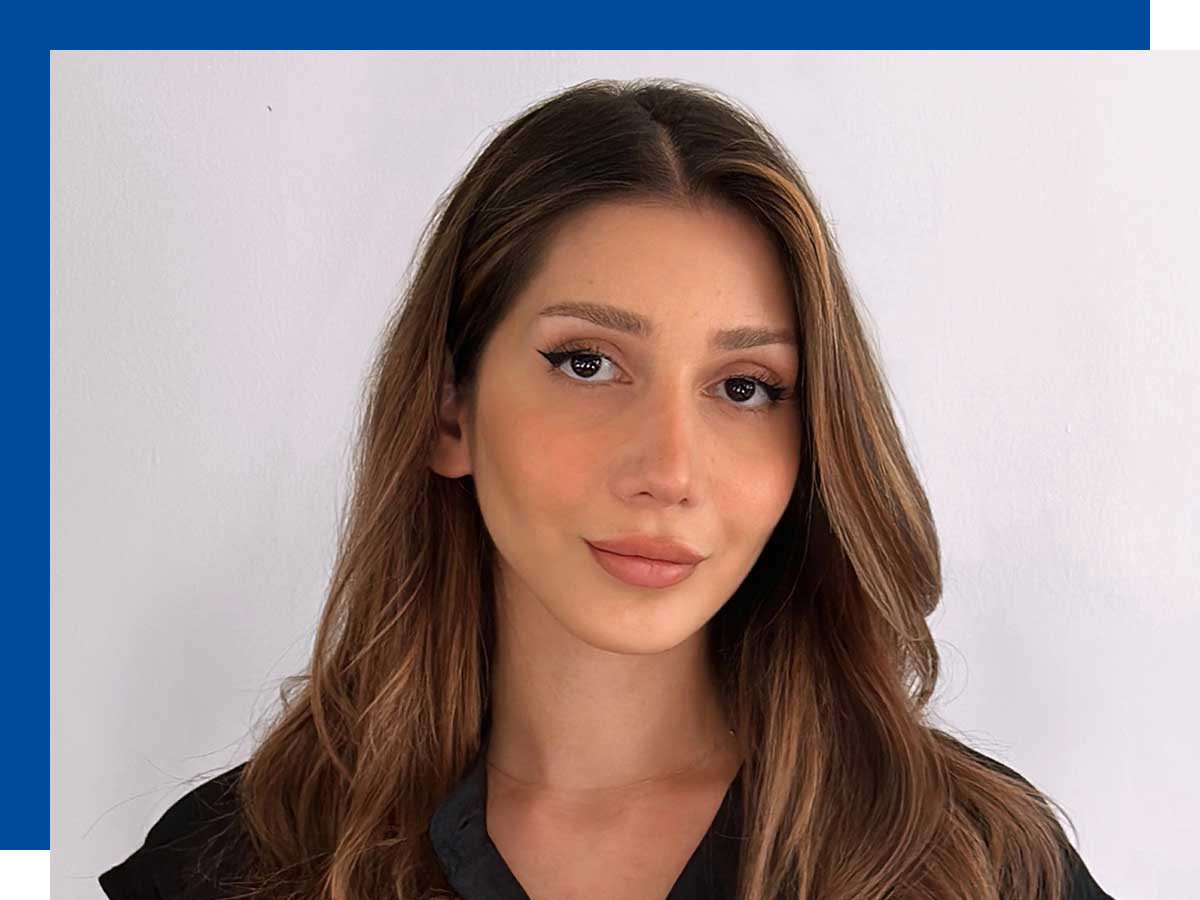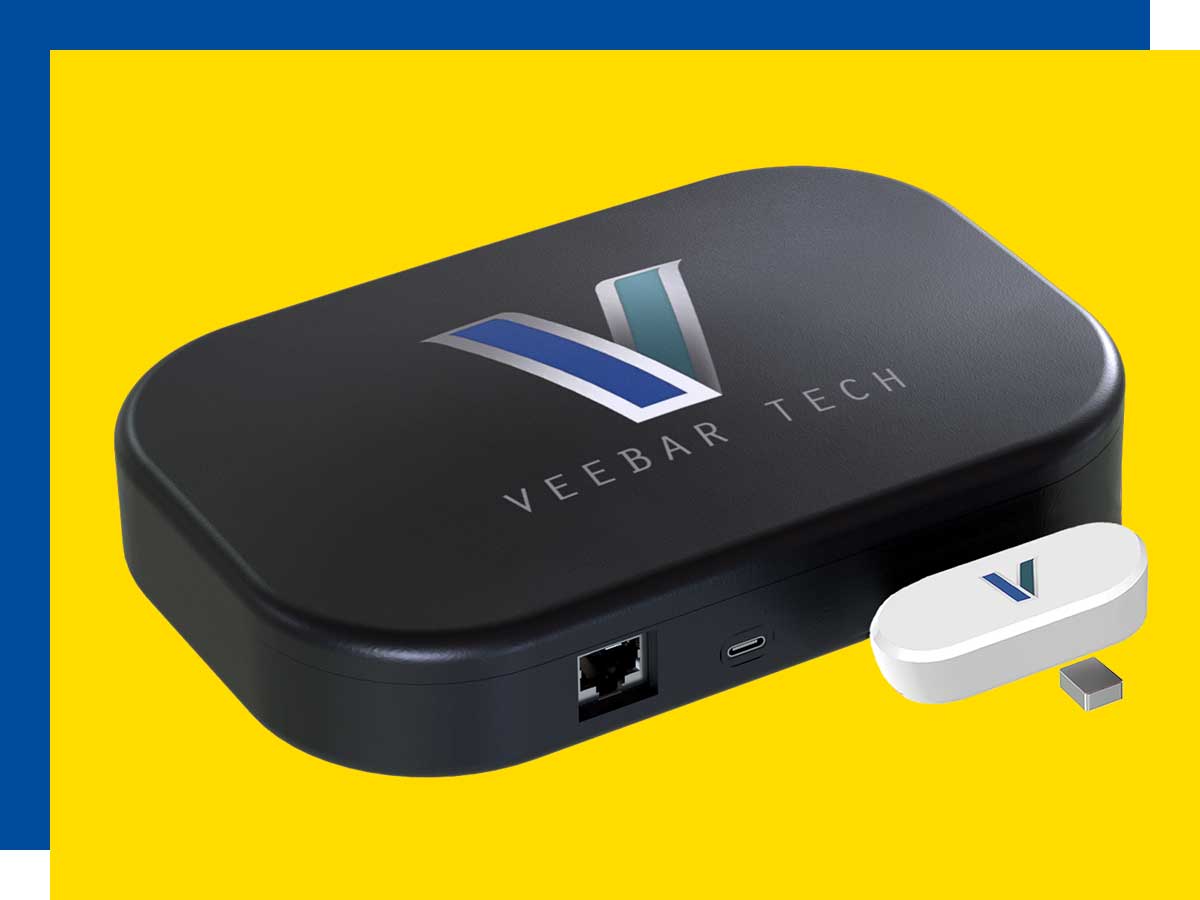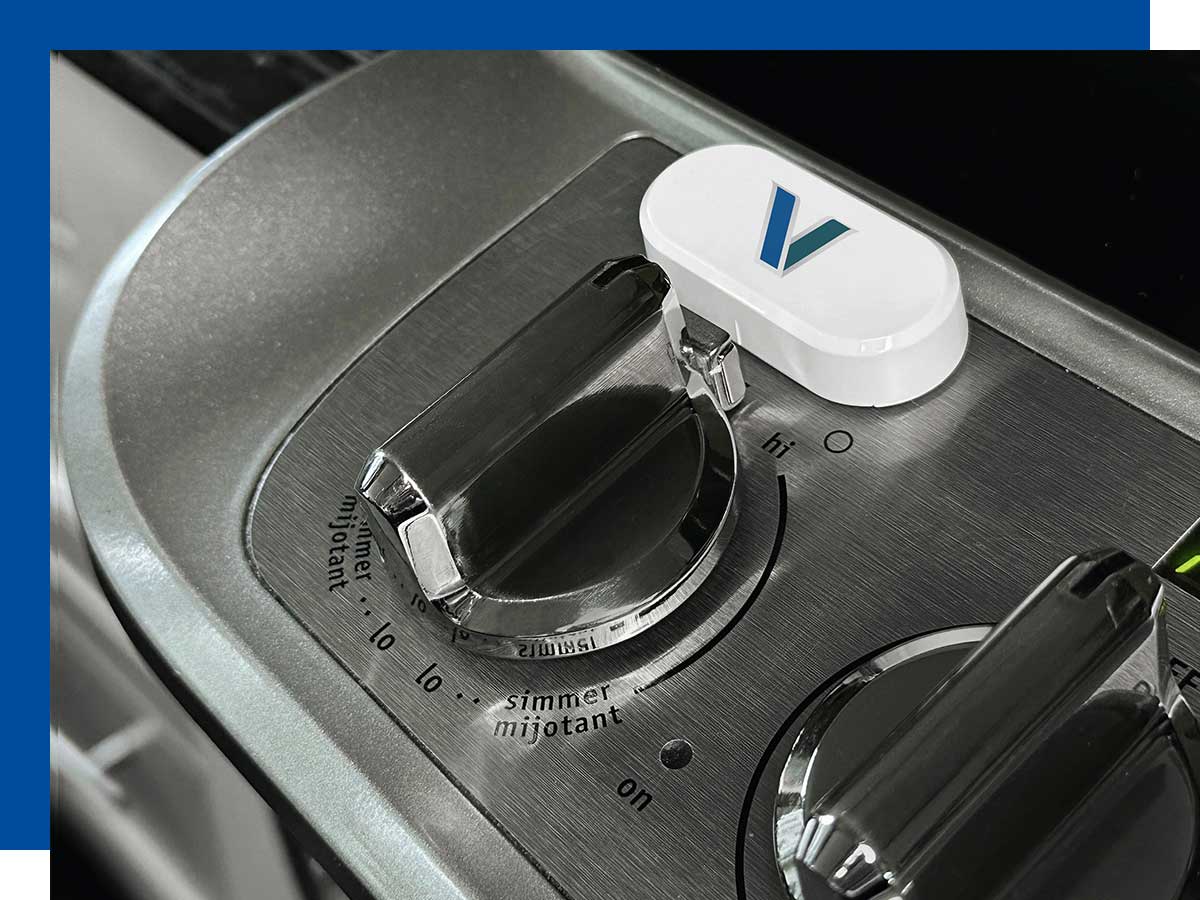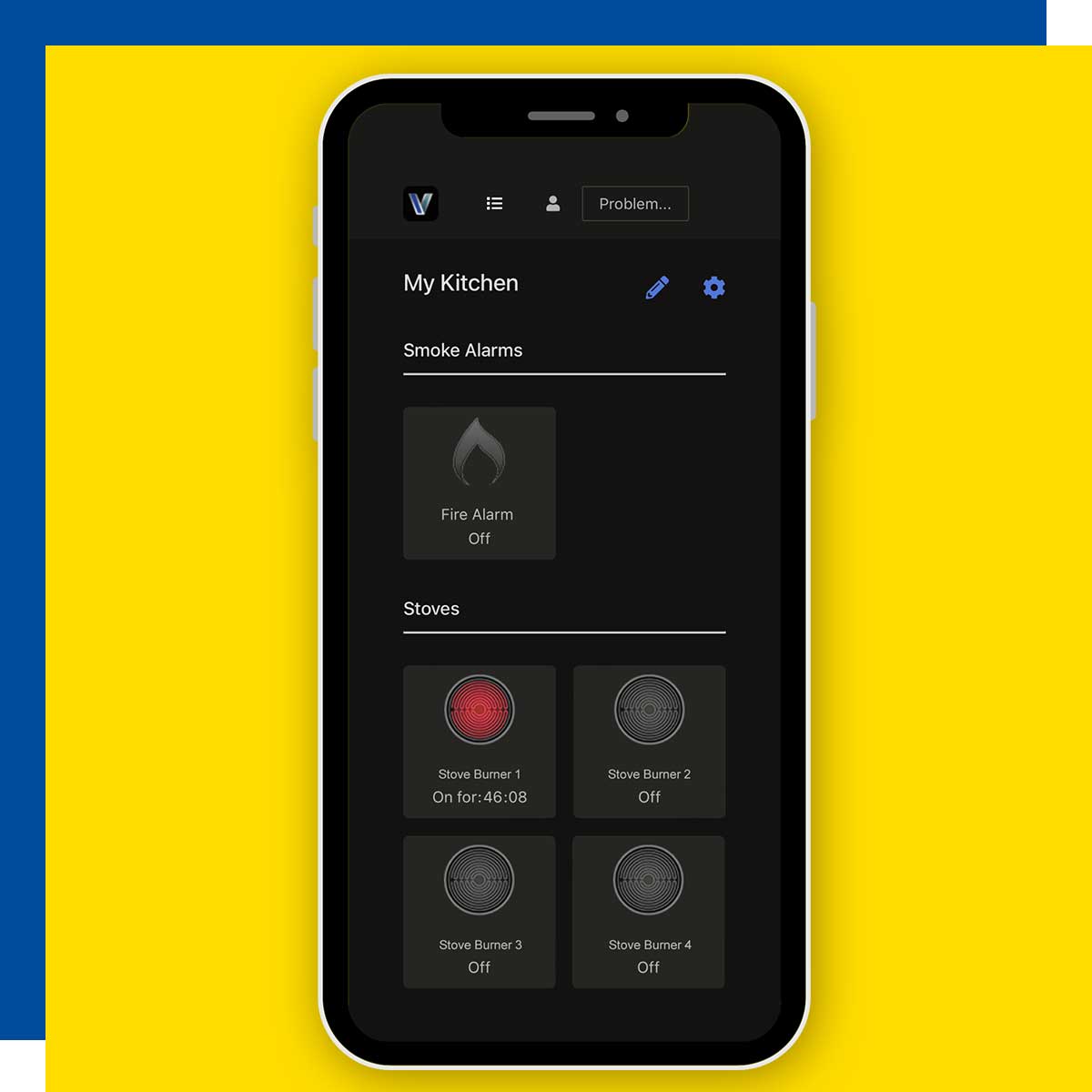Engineering grad makes stoves safer for seniors

Ayda Naserialiabadi (Industrial Engineering ’19) is close to her grandmother, but is unable to check in on her elder regularly because she resides several miles away. When her grandmother, who is hard of hearing and lives alone, experienced a few close calls after leaving the stove on and not hearing the smoke alarm, Naserialiabadi wanted to create a solution to help her, and other seniors, live safely and independently.
While an engineering student at Toronto Metropolitan University (TMU), Naserialiabadi and fellow student Younes Sadat-Nejad (Electrical and Computer Engineering (MASc) ’19) co-founded Veebar Tech (external link, opens in new window) , a startup that develops products to enhance safety for seniors living with dementia or who have experienced hearing loss.
“Through our research, we uncovered that over 50 per cent of fire incidents originate from unattended stoves, and that seniors are particularly at risk due to certain limitations,” Naserialiabadi said. This realization led to the creation of the company’s first product, the Kitchen Safety Kit (external link, opens in new window) , which includes add-on sensors that can “smarten up” your existing stove and smoke detector.
Improving kitchen safety
“Our stove sensors are designed using a magnet-based mechanism, which we’ve innovated with our smoke detectors by integrating microphones that specifically capture the sound frequency of smoke alarms — an invention we’ve secured with a patent,” she explained. “During our design process, we recognized that installation can be a hurdle for many, so we focused on creating a system that requires minimal set up.”

Stove sensor and central hub in Veebar Tech’s Kitchen Safety Kit

Stove sensor installed on a stove
To install the Kitchen Safety Kit, you simply have to place the sensor and magnet on the stove knob, plug in the central hub and connect it to your Wi-Fi modem, and then download the app to your phone. This allows a family member or caregiver, no matter where they are, to remotely monitor the safety of their senior relatives. Users will be notified through their smartphone whenever unusual activities are detected, such as the stove being left on for more than 45 minutes or a smoke alarm. Naserialiabadi added, “What sets Veebar Tech’s product apart is its adaptability: it is compatible with any stove with knobs, regardless of the brand or size.”

Phone app used to monitor stove and smoke alarm
As a Stage Three Esch Award winner at TMU, which grants $25,000 to support a Faculty of Engineering and Architectural Science student’s startup idea, Naserialiabadi was able to further develop and test the beta version of the product, as well as its branding and packaging. Thanks to a generous donation from the Norman Esch Foundation, the Norman Esch Awards have continuously promoted a culture of innovation and entrepreneurship within FEAS.
After graduating, Naserialiabadi continued working on the Kitchen Safety Kit and testing every detail, and is excited to finally be able to launch the product this fall. In the future, she hopes to continue creating more smart sensors to help with different kinds of safety, not just in the kitchen. “We have a team of skilled engineers who are great at what they do, and we all see the huge demand for these solutions,” she said.
Learnings from TMU
Naserialiabadi is thankful for her experience at TMU for getting her to this point. “I started my journey at TMU pretty unsure of myself, studying for a bachelor’s in engineering without a clear picture of what I wanted my future to look like,” she noted. “But then I got involved in various communities at the school, and the one that changed everything for me was the entrepreneurship ecosystem.”
“I was incredibly fortunate to get involved with TMU Zone Learning, and I can’t say enough positive things about the Innovation Boost Zone. The welcoming atmosphere from the members and staff there is a big part of why I’ve gotten this far,” she added.
She was also surprised that there was much more to learn than just engineering skills. “I found out how vital communication, networking and social skills are, and how being active in these communities helped me build those abilities,” Naserialiabadi said. “It wasn’t just about the technical stuff; it was these human connections and interactions that really pushed me forward in my career.”
Supporting women in tech
In addition to her role as CEO at Veebar Tech, Naserialiabadi has also been an active member of the Institute of Electrical and Electronics Engineers (IEEE) Women in Engineering (WIE) (external link, opens in new window) , which supports and empowers women in the tech industry. She heard about this group from Maryam Davoudpour, Naserialiabadi's former professor.
Naserialiabadi points out that sometimes being a woman in engineering can feel isolating. “I’ve seen first-hand so many women with incredible talent and skills, but often they’re holding back, lacking the confidence to really shine, especially during their student years. That’s something I wanted to help change,” she explained.
“Being surrounded by a group of women at IEEE WIE, openly sharing our experiences, our struggles and supporting one another — it’s really empowering.” Naserialiabadi said. “It’s not just about professional growth; it’s about building mental and emotional resilience that makes you stronger and more successful. Being a part of that transformative environment? There’s nothing quite like it.”
If you are a TMU graduate who would like to share your expertise and advice with upper year students transitioning into the workforce, learn how to become a Career Mentor.